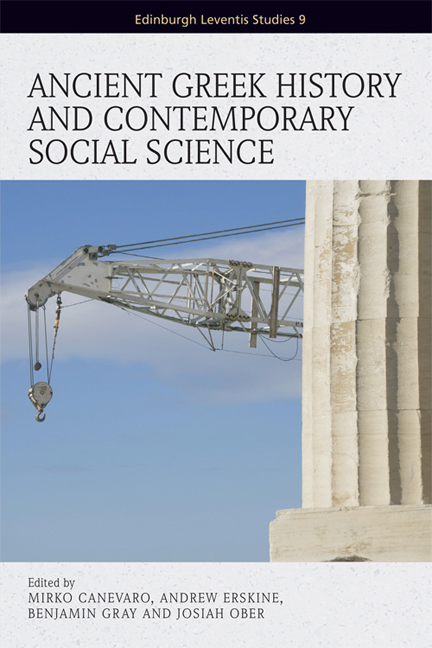19 - Technology and Society in Classical Athens: A Study of the Social Context of Mining and Metallurgy at Laurion
Published online by Cambridge University Press: 06 May 2021
Summary
Demetrios, he says, states in reference to the Attic silver mines that the people dig as strenuously as if they expected to bring up Pluto himself.
Strabo, Geography 3.2.9INTRODUCTION
Technology is a ubiquitous aspect of our everyday world. We use it in all our endeavours, from the moment we wake up to the moment we go to sleep. Although it is hard to ignore in this day and age, classical scholars have shown little awareness of this observation in their research. Technology has primarily been studied from a restricted angle, most notably a technical or economic one. The former perspective views technology as a purely technical force, concentrating principally on tools and techniques. This has resulted in meticulous, descriptive studies of specific technologies, but has rarely led to a more contextual interpretation of their development. The latter approach focuses on technological innovation, and its capability to increase production outputs and trigger economic growth. Since technology is a major determinant of economic development, this is an important angle; however, technological change cannot be appreciated and understood from this perspective alone.
In this chapter, I present a different way of approaching classical technology. Using the sociological theory of SCOTS (social construction of technological systems), I argue that technological change always occurs against the backdrop of interdependent environmental, social, economic and political factors. Without focusing on this entanglement, technological change can never be truly appreciated and understood.
I will apply this approach to the case study of the Athenian silver mines in Laurion, an area of approximately 200 km2 in the south-east of Attica in Greece (Fig. 19.1). Laurion was exploited for its mineral resources from the transition of the Final Neolithic–Early Bronze Age until the late Roman period, with a peak in the fifth and fourth centuries BCE. This boost in mining occurred against the background of environmental changes, such as depleting ore bodies, and a range of political and economic events, such as the introduction of coinage, the Persian Wars and the active interference of Athens in the area. Under the influence of these intertwining factors, the area was transformed into a vast industry, leaving behind a remarkably varied infrastructure of mine entrances, spoil heaps, ore-washing workshops and furnaces (Fig. 19.1).
- Type
- Chapter
- Information
- Ancient Greek History and Contemporary Social Science , pp. 529 - 557Publisher: Edinburgh University PressPrint publication year: 2018



